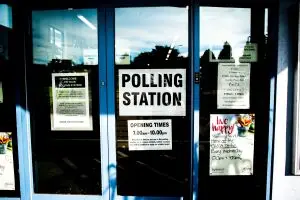Last week the Chancellor of the Exchequer, The Rt Hon Jeremy Hunt MP delivered what is expected to be his final Spring Budget.
Whilst net zero was not a key theme of the speech, energy security and nuclear were given prominent focus and despite being conspicuously absent from his speech, the Budget announced the setting of a £1bn+ budget for this year’s renewable auctions. Below are the four key takeaways for energy:
-
Nuclear: Wylfa sold and SMR competition to progress
The nuclear sector was a key beneficiary of the Budget. The Chancellor confirmed the Government’s agreement with Hitachi to purchase the Wylfa site in Ynys Môn and the Oldbury site in South Gloucestershire for £160 million. This is with the aim of building either new nuclear plants or hosting a number of small modular reactors (SMRs) at the sites.
Additionally, the Government announced the next stage of the SMR technology selection process, with tender responses to be submitted by June. These decisions are in keeping with policy objectives laid out in the Civil Nuclear Roadmap, announced earlier this year, which included building new nuclear power stations, encouraging advanced nuclear technologies, and reaching a final investment decision regarding Sizewell C by the end of this Parliament. The longer-term aim of the Roadmap is to ensure that nuclear energy generates around a quarter of the UK’s electricity needs by 2050. Delays in the construction of Hinkley Point C have thrown a wrench in the UK’s long-term energy plans, making the Government’s net zero goals harder to achieve.
-
Contracts for Difference: £1bn+ budget potentially insufficient for 50GW wind target
Unmentioned in the speech was the CfD budget for Allocation Round 6 (AR6)
Following the disappointment of AR5, where there were no successful offshore wind bids, this year’s budget has been set at a record £1.025bn. Despite the increase, industry has cautioned that this will be insufficient to deliver the scale of investment required to deliver the UK’s ambition of 50GW by 2030. To achieve this goal, the Government must enable an additional 21GW of offshore wind- with it taking around five years from receiving a CfD contract to the first production of electricity from a new offshore wind farm, only CfD contracts awarded in AR6 and AR7 can realistically be expected to contribute to the 2030 target. This means that the next two Allocation Rounds need to award at least 10GW of offshore wind each, with the budget for AR6 forecast to fall short at 3GW-5GW.[1] The highest capacity at a previous Allocation Round was 5.5GW at AR3.[2]
-
Grid and planning reform: speeding up connections
Reform of grid and planning was a notable feature of the energy policies set out in the Budget. Whilst this was primarily focused on laying out previous commitments, there was a notable shift towards implementing tighter measures to tackle the existing grid connections queue. Specifically, the Budget confirmed the move to a more ‘stringent’ connections process to be implemented by January 2025, with interim measures to be set out this summer.[3]
-
Energy Profits Levy: tension and increased tax returns
The Energy Profits Levy, a windfall tax on oil and gas companies, was first introduced in May 2022 following record profits for businesses including Shell and BP.[4] According to the Government, the extension is because of the continuation of the war in Ukraine – windfall profits are expected to continue. The Government has said that the tax will end if oil and gas prices fall below a certain level for six months.
Reports that energy policy has led to behind-the-scenes tensions have circulated in the past few days. The extension of the Energy Profits Levy for another year to 2029 has been poorly received by the oil and gas industries and senior Scottish Tories, including leader of the Scottish Tories in Holyrood, Douglas Ross,[5] and Nuclear Minister Andrew Bowie, who tweeted that the extension was ‘deeply disappointing’.[6]
Next steps
Increasingly, the Government is trying to make energy a dividing line with Labour. The recent rollback of Labour’s £28 billion per year green investment pledge has drawn greater attention to the budgetary challenges that the future Government will face in meeting the UK’s climate goals without significant action.[7]
With a general election likely to occur in the next six months, the energy industry faces a period of change and opportunity. In that context, organisations need to shape policy suggestions to appeal to key stakeholders and act carefully to navigate the build-up to the election.
BREVIA ENERGY PROVIDES STRAIGHTFORWARD PUBLIC AFFAIRS AND PUBLIC RELATIONS SUPPORT TO ORGANISATIONS OPERATING IN THE UK ENERGY SECTOR.
Discover how Brevia Energy can help you and your organisation by visiting: www.brevia.co.uk/sectors/energy/. You can also contact the Brevia Team on 020 7091 1650 or email contact@brevia.co.uk
Notes
[1] Energy UK, Energy UK explains: how much renewable energy can we expect from Allocation Round 6?, 6 March 2024, link
[2] Energy UK, Energy UK explains: Allocation Round 6 and the UK’s energy security goals, 22 February 2024, link
[3] The Guardian, Grid connection delays for low-carbon projects ‘unacceptable’, says Ofgem, 16 May 2023, link
[4] BBC, What is the windfall tax on oil and gas companies and how much do they pay?, 7 March 2024, link
[5] The Telegraph, Panicked Tories ‘talked down’ Scottish Tory leader amid fears he was on brink of quitting over Budget, 5 March 2024, link
[6] Andrew Bowie MP, X Post, 6 March 2024, link
[7] Chatham House, Labour’s ditched £28 billion climate pledge sends the wrong message on UK COP energy commitments, 14 February 2024, link




